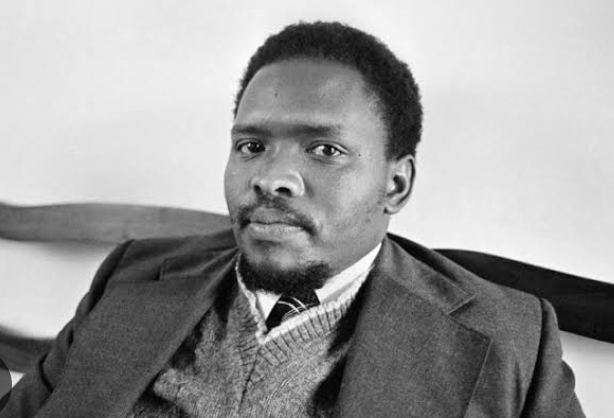Steve Biko Biography: From Humble Roots to Black Consciousness Legend and Anti-Apartheid Hero

Steve Biko was a South African freedom fighter, thinker, and activist who gave black people courage to believe in themselves during the painful years of apartheid. He spoke of pride, self-respect, and freedom at a time when millions of people lived under laws that told them they were less than human. His life was short, ending at the young age of thirty, but his message was so powerful that it continues to inspire people around the world today.
This is the story of Stephen Bantu Biko, a man who became the voice of Black Consciousness, a man whose words challenged a whole system of injustice, and a man whose memory will never be forgotten.
Early Life and Family Background
Stephen Bantu Biko, widely known as Steve Biko, was born on 18 December 1946 in a place called King William’s Town in the Eastern Cape province of South Africa. He came from a humble background and grew up in a time when South Africa was under the apartheid system, a cruel policy of racial segregation that gave rights to white people while oppressing black people.
Steve’s father, Mzingaye Mathew Biko, worked as a clerk in the King William’s Town Native Affairs Office. Sadly, he died when Steve was just four years old, leaving his wife to raise their children alone. Steve’s mother, Alice Nokuzola Biko, was a domestic worker who cleaned houses and cooked for white families to earn a living. Life was not easy, but Alice was strong, hardworking, and determined to provide her children with education and discipline.
Steve was the third child in the family. He had an older brother named Khaya Biko, who played an important role in his life, and sisters named Bukelwa and Nkita. Growing up without a father was tough, but his mother’s strength and his brother’s encouragement helped shape his character. Khaya especially influenced Steve’s early interest in politics and social issues, planting the seeds that would later grow into powerful activism.
Read Also: Tony Rapu Biography: Early Life, Education, Career, Nationality, Age 2025
Steve Biko Education
Steve Biko started his schooling at Charles Morgan Primary School before moving to Lovedale High School, which was a well-known mission school. However, his stay there was cut short. He was expelled because the authorities suspected him of being politically active, even though he was still very young.
This did not stop him from learning. He later attended St. Francis College in Mariannhill, a Roman Catholic boarding school near Durban. At St. Francis, he proved to be a bright student with sharp thinking and leadership qualities.
In 1966, Steve Biko was admitted to the University of Natal Medical School in Durban, where he began studying medicine. However, as time passed, Biko realized that his passion was not only in medicine but also in the fight for justice. At the university, he was exposed to politics, debates, and student organizations that were actively discussing the realities of apartheid. This was the environment where Steve Biko truly found his voice and began shaping his ideas about freedom and equality.
Career in Activism
As a student, Biko joined the National Union of South African Students (NUSAS), but he quickly noticed something troubling. Although the union claimed to fight for all students, it was still dominated by white members, and black students did not feel fully represented. Biko believed that black people needed their own voice and their own platform to speak for themselves.
In 1968, he and other black students broke away from NUSAS and formed the South African Students’ Organisation (SASO). Biko became its first president. This was the beginning of his journey as a national leader.
SASO promoted a new philosophy called Black Consciousness, which was developed and spread by Steve Biko himself. Black Consciousness was about more than politics; it was about the mind. Biko taught that apartheid worked not only by laws and guns but also by making black people feel inferior. To defeat the system, black South Africans first needed to free themselves mentally, love themselves, and see their worth.
One of his most famous phrases was “Black is Beautiful.” By this, Biko did not only mean physical beauty. He meant that black people should stop measuring themselves by white standards and instead take pride in their identity, culture, and humanity.
The Black Consciousness Movement (BCM), inspired by Biko’s ideas, became a powerful force in South Africa during the late 1960s and 1970s. The movement encouraged self-reliance, unity, and pride among black people.
Biko believed that true liberation could not come from outside. It had to come from within the oppressed community itself. He encouraged black South Africans to build their own schools, clinics, and community projects without depending on white liberals or the government. His message gave people confidence and courage to resist oppression.
Black Consciousness also deeply influenced the youth, especially students who later played a central role in protests like the 1976 Soweto Uprising, where thousands of students took to the streets to fight against apartheid education policies.
The apartheid government quickly realized how dangerous Biko’s ideas were to their system. Words, after all, are powerful, and Biko’s words were awakening a whole nation.
In 1973, the government banned Biko. This meant he was not allowed to speak publicly, attend gatherings, or even leave his home area in King William’s Town. He was under constant police watch. Yet, even under the ban, Biko found ways to continue his activism. He secretly met with other leaders, wrote under false names, and supported community development projects.
Despite the government’s efforts to silence him, Biko’s influence kept spreading. His ideas became the fuel that powered resistance across South Africa.
Arrest and Death
On 18 August 1977, Steve Biko was arrested at a police roadblock. He was taken into custody and brutally interrogated by the South African security police. During his detention, he was beaten and tortured, suffering severe head injuries.
Instead of receiving proper medical care, Biko was left untreated for days. He was later transported naked in the back of a police van for more than 1,000 kilometers to Pretoria Central Prison. On 12 September 1977, Steve Biko died in custody at the age of only 30.
His death sent shockwaves across South Africa and the world. The government claimed he died of a hunger strike, but investigations later revealed the truth about the brutal beatings. His funeral drew more than 20,000 mourners, and international condemnation of apartheid grew louder after his death.
Achievements
Even though his life was short, Steve Biko left behind remarkable achievements:
- He was the founder and first president of the South African Students’ Organisation (SASO).
- He developed and spread the philosophy of the Black Consciousness Movement, which restored pride and dignity to black South Africans.
- His slogan “Black is Beautiful” became a global symbol of self-love and resistance.
- He inspired the youth, especially during the 1976 Soweto Uprising, which marked a turning point in the struggle against apartheid.
- His writings and speeches, collected in books such as I Write What I Like, continue to inspire people around the world.
Net Worth
Steve Biko never lived for money. He was not wealthy in material terms because his life was dedicated to fighting injustice. He lived under restrictions, harassment, and bans from the government, which made it impossible for him to build financial wealth. His true net worth was not measured in money but in the power of his ideas, the inspiration he gave to millions, and the legacy he left for generations to come.
Legacy
Today, Steve Biko is celebrated as one of the greatest heroes of South Africa. After apartheid ended in 1994, many streets, schools, and institutions were named after him. The Steve Biko Foundation was created to carry on his vision of education, community development, and empowerment.
In popular culture, his life has been remembered in songs, books, and films. International musician Peter Gabriel wrote a song titled “Biko” in 1980, which helped spread his story across the globe. In South Africa, his face and words are symbols of resistance, courage, and dignity.
Steve Biko’s message that freedom begins in the mind remains relevant not just in South Africa but everywhere in the world where people are struggling against injustice and inequality.
Conclusion
Steve Biko’s life was short, but it was not wasted. Born in 1946 to a poor family, losing his father at a young age, and facing the crushing weight of apartheid, he still rose to become one of the most important voices for freedom. Through the Black Consciousness Movement, he gave black South Africans pride in themselves and courage to resist oppression.
His death at the age of thirty was tragic, but instead of silencing him, it made his voice louder. Today, Steve Biko is remembered as a fighter, a thinker, and a symbol of dignity. His story teaches us that even in the darkest times, one person’s courage and ideas can awaken a whole nation and leave a legacy that never dies.



